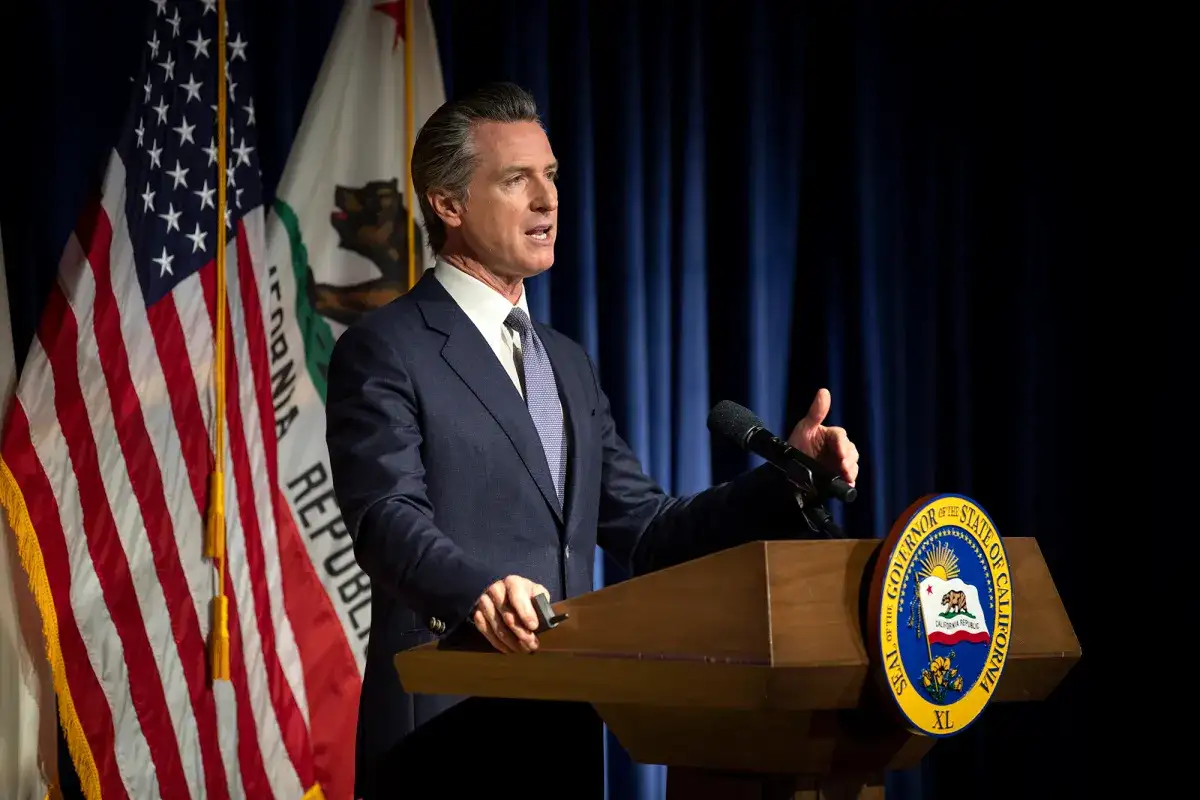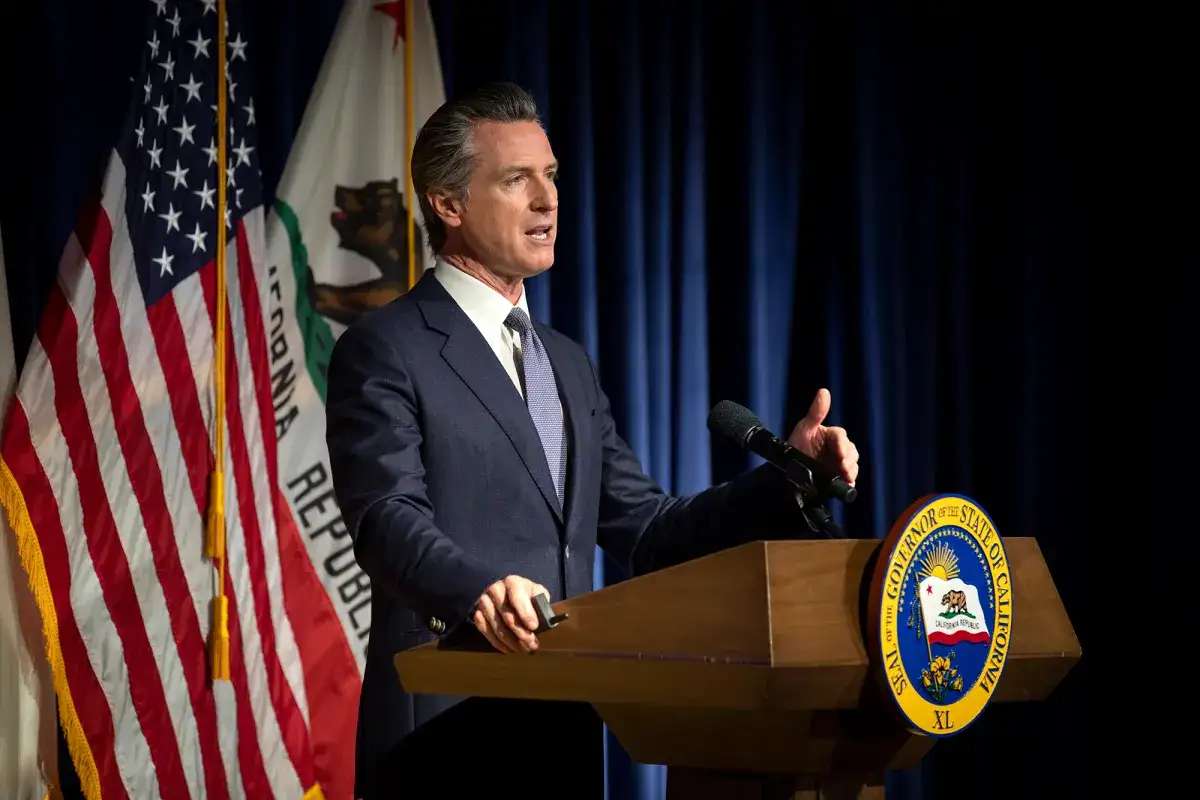Gov. Gavin Newsom (D-CA) released a revised spending plan in mid-May, raising concerns among local politicians and public officials about multiple budget cuts in 2023-24.

Newsom Is Cutting Monies From Sectors To Address Budget Crisis
Since the original budget plan was revealed in January, the expected fiscal deficit in California has increased by $9 billion. It’s a sharp contrast to the federal surplus of last year. According to Newsom, the budget deficit surpassed $31.5 billion in May.
The budget crisis is the result of banking and stock market turbulence, as well as delayed tax collection due to significant winter storm damage, among other factors. Newsom is cutting monies from a range of sectors, including state prisons and public transit, in order to address the terrible fiscal situation.
Lawmakers are questioning Newsom about what the cuts will mean for their constituents, and local experts are chiming in on the potential consequences if the bill is not passed by the June 15 deadline.
READ ALSO: Class-action Settlements With June Deadlines Are Available To Many People – Not Exhaustive List
Newsom Is Proposing Five Prison Closures By 2027 Due To A Low Inmate Population And High Expenses
Newsom is accelerating long-standing plans to close state prisons as the number of people incarcerated falls and the expenses of running these overcrowded facilities remain high.
The May modification advises that California close five prisons by 2027, up from the three prison closures indicated in the 2023-24 budget framework announced in December 2022.
The Deuel Vocational Institution in Tracy was successfully closed down by the Newsom administration in 2021, and the California Correctional Center in Susanville is expected to close at the end of June. Blythe and California City prisons are scheduled to close in March 2025.
In March, lawmakers and residents of Blythe, in eastern Riverside County, launched a crusade to save the prison. The “Save Chuck” campaign urges keeping the area’s second-largest company open, citing the loss of 800 jobs and people’ income.
State Senators Steve Padilla (D-CA) and Kelly Seyarto (R-CA) prepared a letter to Newsom requesting him to reconsider closing the California Rehabilitation Center in Norco.
“Community leaders in Blythe and surrounding communities are enthusiastic supporters of the prison in their region,” according to the letter.
The vice mayor of Blythe, Joseph “Joey” DeConinck, told the Riverside Record that he, too, opposes Newsom’s decision.
“I’m really surprised the state didn’t, I’m gonna say, didn’t do their homework,” DeConinck said. “I take a look at it; they haven’t done their homework on this particular project.”
Last week, just after Newsom’s revised May budget plan, Assembly leaders presented their 2023 budget plan. According to the proposal, Democratic Assembly Budget Chairman Phil Ting of San Francisco is putting pressure on the Newsom administration to propose five further prison closures by 2027.
Newsom’s current proposal would reduce the budget of the California Department of Corrections and Rehabilitation by more than $100 million. According to data from the Legislative Analyst’s Office, the cause is the low inmate population, which is expected to continue to fall until 2027, leaving approximately 20,000 empty prison beds.
Public transportation is available.
San Francisco officials are pleading with the state legislature to provide more cash for the Bay Area Rapid Transit, which has been in crisis mode due to poor ridership in recent years.
Despite state leaders lobbying for help once federal and state pandemic assistance ends, Newsom’s newest budget plan reduced public transit funding by about $2 billion.
“We are in the red zone right now when it comes to public transportation in the state of California,” San Francisco state Sen. Scott Weiner, a Democrat, said at a press conference in Sacramento on Tuesday.
In a press conference last month, Weiner and other public transit advocates recommended an additional $5 billion in state spending over the next five years, calling the measure “completely doable.”
“Ridership has not recovered as quickly as we need to make up for the loss of those federal funds,” said Weiner. “That is why the government must intervene.”
Weiner emphasized that the Los Angeles Metro Authority is likewise experiencing significant operational difficulties.
“It’s time for California, the state of California, to intervene and ensure that we don’t step off a transit fiscal cliff that puts us into a doom loop that we cannot recover from,” California state Assembly Member Buffy Wicks, a Democrat, said at an emergency public transit funding press conference Tuesday.
Wicks emphasized the significance of these monies for transit-dependent districts such as the East Bay and cities such as Oakland and Berkeley, which he represents. According to Wicks, if public transit becomes unavailable, it will have an impact on “working-class families’ financial stability.”
Climate change initiatives.
Newsom’s May adjustment to the 2023-24 budget maintained the January legislation’s $6 billion decrease to climate funding. The state budget last year includes a $54 billion five-year climate pledge, while the state aims to spend $48 billion this year.
While some hail the steady budget from earlier this year as a triumph, others advocate for matching money from past years.
This week, environmental, health, and consumer organizations wrote to Newsom, urging him to include additional funds for clean transportation and clean energy in the state budget.
“We understand that the State must balance the budget, but core programs — which include investments needed to achieve the state’s climate goals — should be protected on an ongoing basis, not just in a budget surplus year,” the letter adds.
If the law passes in mid-June, federal funds previously committed to support California’s transition to clean up the water supply, decarbonize buildings, and offer preventive heat measures will be jeopardized.
Before June 15, California lawmakers typically present additional measures or minor allocations to include in the approved budget. Newsom must sign a budget for 2024-23 by June 30.
READ ALSO: NAACP Condemns Debt Ceiling Raise, Citing Negative Effects On Black Americans




